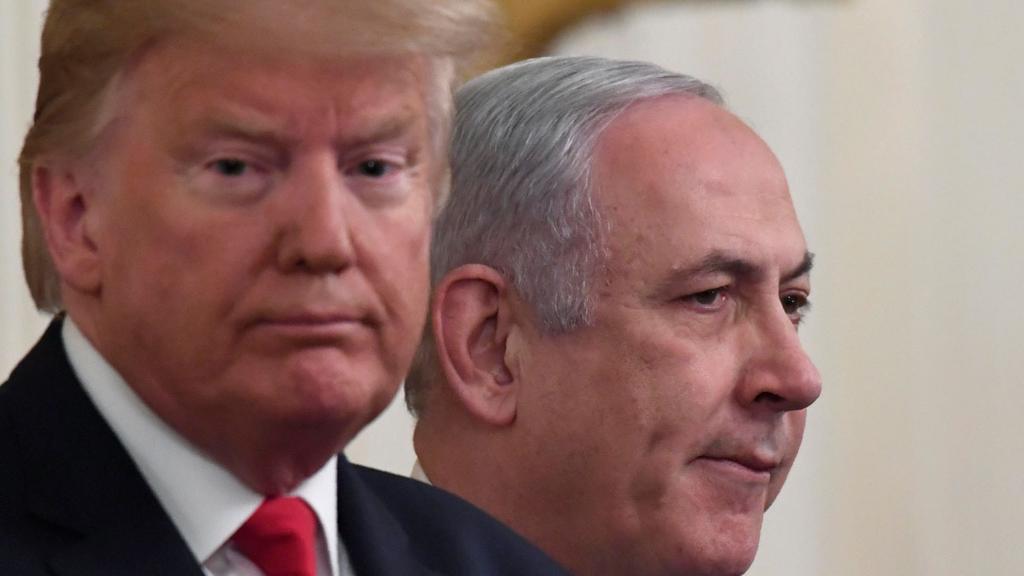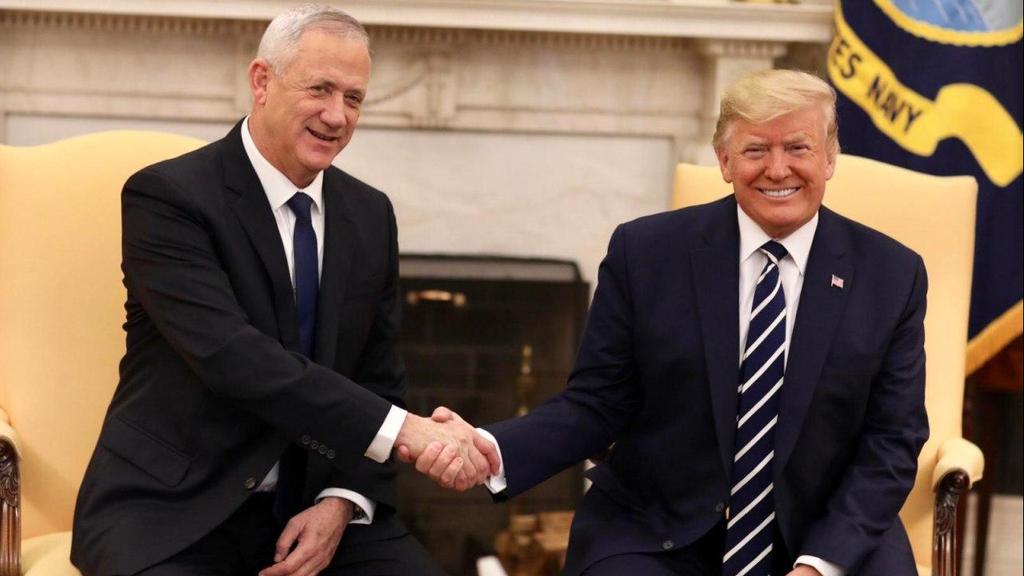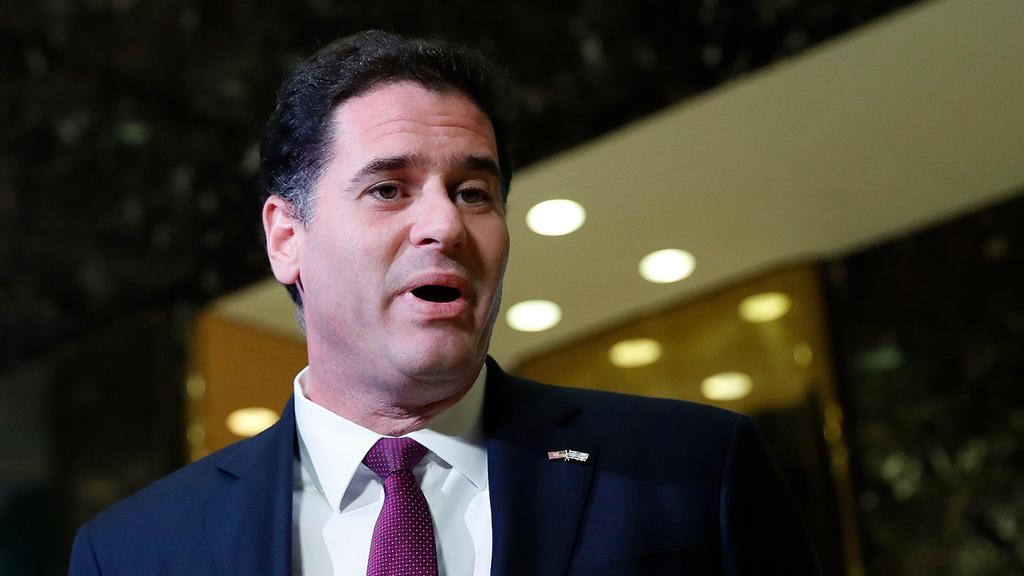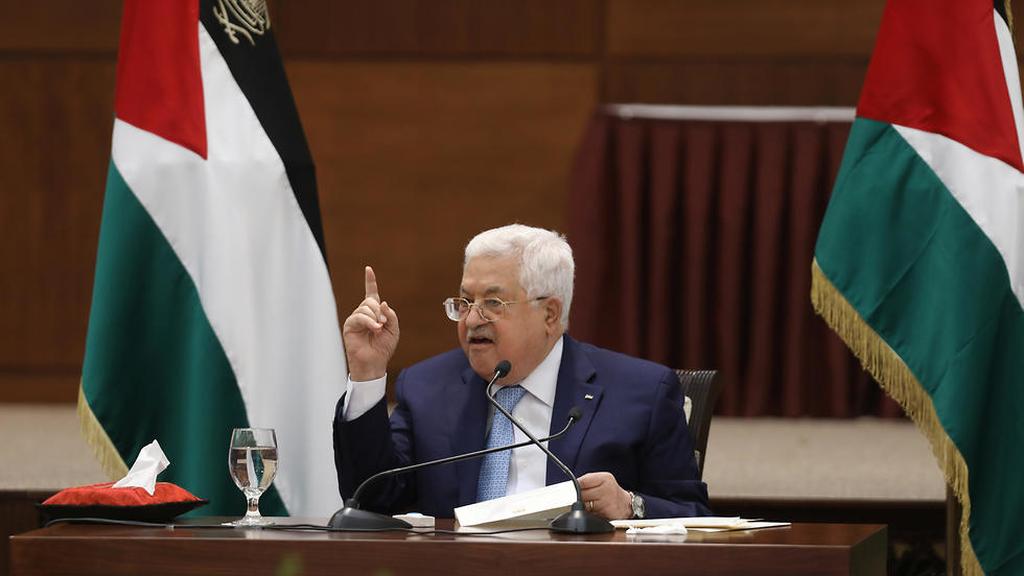Getting your Trinity Audio player ready...
U.S. President Donald Trump's peace plan for the Israeli-Palestinian conflict, which was so intensively constructed and so warmly welcomed by both Prime Minister Benjamin Netanyahu and Defense Minister Benny Gantz upon its reveal, has been rather sidelined during the coronavirus epidemic.
Now, as the virus' presence in the region declines, the so-called "Deal of the Century" has returned to Israeli, American, and Middle East discourse – and it may soon prove to be a trap.
4 View gallery


Prime Minister Netanyahu and U.S. President Trump during the unveiling of the American peace plan
(Photo: AP)
During a Likud faction meeting this week, Netanyahu said Israel is set to extend its sovereignty over West Bank settlements starting July.
Even Foreign Minister Gabi Ashkenazi talked of the plan's historical importance, but on the very same day the Yesha Council – an umbrella organization of municipal councils of Jewish settlements in the West Bank – rejected what they called, "a dangerous outline."
Meanwhile, as the U.S. sees over 100,000 coronavirus victims, and over 10 million Americans have become unemployed since the beginning of the crisis - Trump is vulnerable ahead of the November election and some in Washington have started questioning whether Netanyahu's annexation ambitions are even worth it.
Trump's rather lackluster candidate, Joe Biden, opposes annexation vehemently and calls on Israel to "stop its threats."
The United States' upcoming elections are less about Biden and more about Trump's legacy, and the economy always plays an important part in voters' final decision.
Although a sitting president always has an advantage when citizens go to the polls, those who failed economically always find it hard to return to the White House: Jimmy Carter lost to Ronald Reagan, George Bush – who won the Gulf War – lost to Bill Clinton.
4 View gallery


Defense Minister Benny Gantz and U.S. President Trump during a White House meeting
(Photo: Elad Malka)
Israel is aware of this. Netanyahu, who is in the midst of a legal process for corruption charges, is very afraid of Democrats regaining their hold on the White House or even gaining a majority in the Senate.
Netanyahu has already turned himself into an enemy of the Democrats, and many see him as responsible for spreading hate against former U.S. President Barak Obama and a close political ally of Trump and the American right.
This scenario is less concerning for Gantz and Ashkenazi who could capitalize on the opportunity to rebuild themselves politically and create a trans-Atlantic alliance hostile to Netanyahu.
The notion of loyalty to Trump as the basis to the Israeli-American alliance was conceived within the halls of the Prime Minister's Office and Yesha Council, but now the religious-Zionists – whose representatives mostly found themselves in the opposition – realized that Netanyahu, and maybe even Trump, are jeopardizing their annexation dreams.
Israel's envoy to the U.S., Ron Dermer, soon to be replaced by Likud lawmaker Gilad Erdan, is trying to create a pro-annexation right-wing lobby in Washington, mainly to convince Republicans that such a plan will fire up the Evangelical electorate and will pay dividends in the elections.
Officials both in Washington and Jerusalem are also monitoring Israel's other Middle East neighbors: What will happen if Trump's allies in Jordan, Saudi Arabia, and the Persian Gulf object to annexation? What will happen if Palestinian Authority President Mahmoud Abbas follows through on his threat to annul all past agreements with Israel and the U.S.?
The annexation question and Netanyahu have become a great dilemma for the Trump administration. Even the conservative publicist, Daniel Pipes, an advocate for Netanyahu and Trump, wrote in the New York Times that annexation will cause more harm than good.
The Israeli right is also slowly starting to remember what it tried to forget: the U.S. plan wishes to establish a sovereign Palestinian state on 70% of the West Bank and only 30% annexed by Israel.
It suddenly dawned on them that there is no annexation without a Palestinian state.
This mix of contrasting interests and ambitions with his closest ally, Netanyahu, could cause Trump much damage.
The premier is talking about annexation as a response to what he claims is an attempted legal coup by the left to oust him and to the stubbornness of the Palestinians in the peace process; when in reality, the opposite is true.
Annexation will eventually lead to the defeat of Israel's greatest friend in the White House and the clock is ticking.



